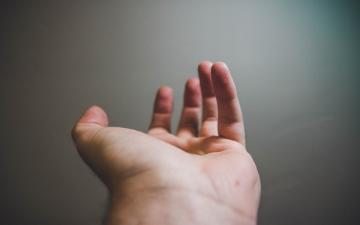
Ann Skeet (@leaderethics) is the senior director of leadership ethics at the Markkula Center for Applied Ethics at Santa Clara University. Views are her own.
A fact sheet from the Center for the Study of Hate and Extremism at California State University-San Bernardino reveals that hate crimes against Asians rose 149% in 2020 over the previous year, increasing in 16 of the United States’ largest cities, while in the same year, hate crimes fell 7% overall. For some, the rise in hate crimes against Asian-Americans and Pacific Islanders (AAPI) is not surprising since we just wrapped up four years with someone serving as president of the United States who regularly made discriminatory and disrespectful comments. Leadership affects not just who wins elections, but increasingly, who lives or dies in the United States, and who feels safe walking her streets.
And yet, public outcry has been slow to build.
The Biden administration is acting. And, the path they are setting has elements of ethical allyship. President Biden strongly condemned the acts of violence six days after taking office. He also launched a White House initiative on Asian Americans and Pacific Islanders, funded support for AAPI survivors of domestic violence and sexual assault, and established a COVID-19 equity task force to address and end xenophobia against Asian Americans that included a subcommittee to explore the drivers on structural health inequity and xenophobia. The White House also established a cross-agency initiative to address anti-Asian violence and the National Endowment for Humanities launched a new virtual bookshelf to highlight Asian American history.
Check, check, check. It’s a big list.
But the impressive attempt belies the realities of democracy, which is that it was designed as a full participation sport. One notable omission this administration has made is in appointing AAPI community members to key leadership positions. The person in the White House may set a path for us, but we cannot always wait for him or her.
Paradoxically, I felt caught between two recent tropes as the violent incidents continued to occur. On the one hand, we are constantly asking people from marginalized populations to do the work the rest of us should be doing—leading the task forces, conducting and reporting the research, leading change. Doing so places an undue burden on them. On the other hand, some say, “nothing about us without us,” meaning that it is critical to have representation from the harmed parties advising policy makers and community shapers, where the decisions are made and the work is done.
Having led a leadership and civic engagement nonprofit that prides itself on a commitment to diversity, I know how quickly people cry foul if they feel any action taken is not enough or off the mark. Having led the development of two publications in Silicon Valley in the 1990s, one for the Latinx community and for the Vietnamese community, I appreciate that working with the people who have firsthand experience is crucial. Trying to find unanimity of a point of view in such groups, though, that’s a whole other ballgame. From that time, I carry a perhaps dated perspective that grouping Asian-American communities together is offensive, as the Chinese-American and the Filipino-American are having different experiences. What I have just described and experienced is analysis paralysis.
Ironically, it is in this paralysis that I find solidarity. First, with men, many of whom describe this walking-on-eggshells feeling following the #MeToo movement. Also, with women in business, who really are so over talking about how to change sexist practices. Or of anyone who has waded into the solution-set waters and been critiqued for not having the standing, the facts, or the personal experiences to legitimately do the work.
All I can recommend is some cultural humility, a practice I’ve been learning about from those who have been using it successfully for several decades in medicine.
- Learn about your own cultural background and how it shapes your beliefs.
- Use culturally appropriate approaches to resolve issues. This likely means building new skills.
- Build your knowledge base of people from diverse cultures, their customs and worldviews, and keep it current.
It looks so simple. If you find yourself paralyzed, act with kindness, but act and do so with the conviction that we all have to do the work to support those common goods that serve us all, like trusting people who are different from us and public safety for all. We need humility, kindness, and action to achieve any semblance of solidarity.
